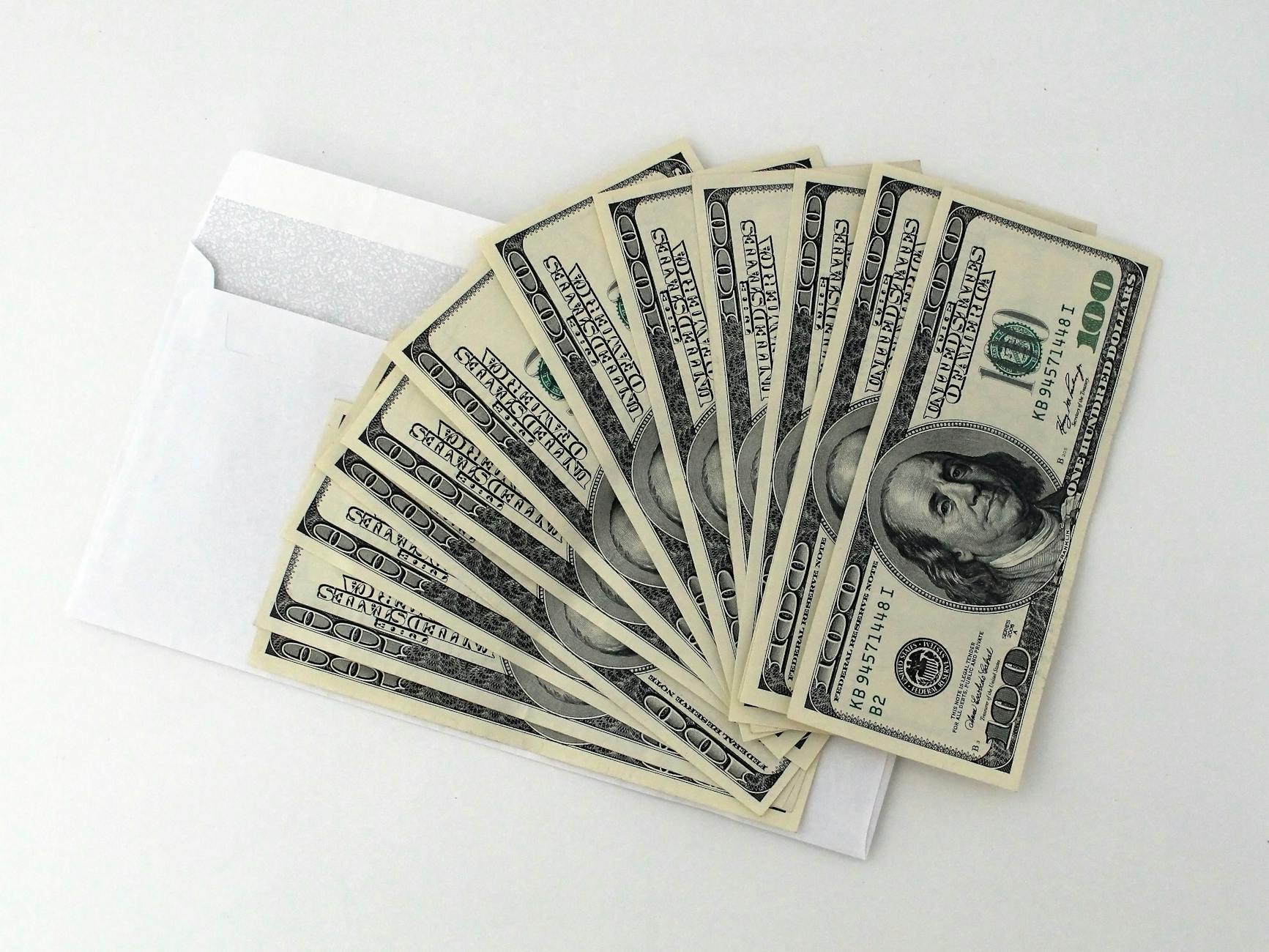Can You Get Loans with a Low Credit Score? Here’s What to Know!
Can You Get Loans with a Low Credit Score? Here’s What to Know!
Your credit score plays a crucial role in securing a loan. If yours is low, you may worry about your options. The good news? Yes, it's possible to get loans even with a low credit score.
Many lenders specialize in offering loans to those with less-than-perfect credit. While higher interest rates and less favorable terms may come into play, there are still pathways to access the funds you need.
In this post, we’ll break down the factors that influence loan approval, explore potential loan options, and provide tips to improve your chances of getting approved. Whether you’re looking for a personal loan, a car loan, or something else, understanding your options can make all the difference.
What is a Low Credit Score?
Understanding what constitutes a low credit score is essential for anyone looking to secure a loan. Credit scores range from 300 to 850, with lower scores typically presenting more challenges when seeking financing. Generally, a FICO score below 580 is classified as poor, which can limit your options.
FICO Score Ranges
The FICO score is the most widely used credit score. Here's a breakdown of the ranges:
- 300 to 579: Poor. Borrowers in this range may face significant hurdles in securing loans.
- 580 to 669: Fair. While some lenders might consider applicants, terms will often be less favorable.
- 670 to 739: Good. Applicants can generally expect better loan options.
- 740 to 799: Very Good. This score range opens many lending doors.
- 800 to 850: Excellent. Borrowers can qualify for the best rates and terms.
A low credit score signals to lenders that you may be a higher risk. Factors that contribute to this classification often include late payments, high credit utilization, or even bankruptcy. If you want to learn more about what specific scores are considered bad, check out here's what is considered a bad credit score.
Impact of Payment History on Credit Scores
Payment history is one of the most significant factors affecting credit scores. This portion accounts for about 35% of your FICO score. Here’s how it works:
- On-Time Payments: Making payments on time positively affects your score. Each timely payment adds to your creditworthiness.
- Late Payments: Missing payments, even by a day, can hurt your score. Payments that are 30 days past due or more can stay on your credit report for up to seven years.
- Types of Accounts: The variety of accounts you pay on time also matters. Regular payments on different types of credit (e.g., credit cards, loans) demonstrate responsible management.
Keeping a clean payment history is vital. To learn more about the importance of payment history, visit what is payment history and how does it impact your credit?.
 Photo by ROMAN ODINTSOV
Photo by ROMAN ODINTSOV
Challenges Borrowers Face with Low Credit Scores
Navigating the loan landscape with a low credit score can be difficult. Borrowers often encounter several challenges that make securing financing more complex. Let's explore some of these obstacles.
Higher Interest Rates
One of the most immediate consequences of having a low credit score is the likelihood of facing higher interest rates. Lenders view low credit scores as indicators of risk. Consequently, they often compensate for this risk by charging borrowers with poor credit more in interest.
For instance, a borrower with a score below 580 might find themselves facing rates that are significantly higher than someone with a score above 740. This can mean spending thousands more over the life of a loan. When shopping for loans, it’s crucial to understand this dynamic. Want to dive deeper into how interest rates vary with credit scores? Check out how your credit score affects your interest rate.
Limited Loan Options
Limited loan options are another significant hurdle. Many mainstream lenders set strict criteria, often excluding individuals with low credit scores. This restriction means fewer choices and potentially unfavorable terms.
While there are lenders who specialize in bad credit loans, they often come with higher fees or less flexibly structured repayment plans. Therefore, borrowers may find themselves stuck with loans that do not meet their needs. For an overview of available options, see best personal loans for bad credit.
Requirement for Collateral or Co-Signers
If you have a low credit score, there's a good chance you might need collateral or a co-signer to secure a loan. Collateral is an asset that the lender can take if you default, which reduces their risk. Conversely, a co-signer is someone with a stronger credit history who agrees to take responsibility for the loan if you cannot pay.
This requirement can be challenging for many. Not everyone has assets to offer as collateral, and finding a co-signer willing to take on that risk can be difficult. Even with a co-signer, you might still face higher interest rates. If interested in learning more about co-signers and their role, you can read about how a co-signer can assist you.
 Photo by Engin Akyurt
Photo by Engin Akyurt
Types of Loans Available for Low Credit Scores
Navigating loans with a low credit score may seem daunting, but various options are still available. Each type of loan comes with its own unique characteristics and requirements, allowing you to find the best fit for your financial situation.
Personal Loans for Bad Credit
Personal loans for bad credit are specifically designed for individuals who may not have the best credit history. These loans can provide quick access to funds without requiring collateral. Reputable lenders like Upstart and Best Egg offer personal loans targeting those with low credit scores. While the interest rates may be higher, they can be a practical choice to meet immediate financial needs. If you're considering a personal loan, PNC's Unsecured Personal Loan is another option that doesn't require collateral.
 Photo by Pixabay
Photo by Pixabay
Secured Loans
Secured loans are a viable option for those with low credit scores. They require collateral, such as a vehicle or savings account, which reduces the lender's risk. Because of this security, borrowers may find it easier to qualify. These loans often come with lower interest rates compared to unsecured loans, making them attractive for many. Popular sources for secured loans include Nerdwallet's guide and LendingTree, where you can explore various options tailored to your needs.
Payday Loans and Cash Advances
Payday loans and cash advances can offer quick cash in emergencies. However, these options come with significant drawbacks. With high-interest rates and short repayment terms, they can lead to a cycle of debt. On the plus side, they're generally easy to access, often requiring little to no credit check. If you're considering this route, weigh the pros and cons carefully. For more insight, check out Cafe Finance's breakdown on payday loans versus alternatives like cash advances from places like Earnin, which often offer more flexible terms.
Credit Union Loans
Credit unions can be an excellent source of loans for individuals with low credit scores. These member-owned institutions often have lower qualification standards and more personalized service. They might provide loans specifically designed for rebuilding credit, such as Credit Rebuilder Loans that require no minimum credit score. Additionally, credit unions often have lower interest rates than traditional banks. To learn more about what credit unions can offer, check out Experian's insights.
Exploring these varied types of loans can help you make informed decisions, ensuring that you find a loan that meets your needs even with a low credit score.
How to Improve Chances of Getting a Loan with a Low Credit Score
If you have a low credit score, it can feel daunting when trying to secure a loan. However, various strategies can enhance your chances of approval. By following these actionable steps, you can put yourself in a better position to obtain the funds you need.
Check and Improve Credit Score
Before you apply for a loan, it's crucial to check your credit score. Understanding your score will help you identify areas that require improvement. You can use services that offer free credit reports to see where you stand. By making small changes like paying down existing debts or ensuring timely payments, you can improve your score.
Consider these steps to elevate your score:
- Make Payments on Time: Consistently pay bills by their due dates to boost your score.
- Reduce Credit Usage: Aim to keep credit card balances low. Ideally, under 30% of your available credit limit is optimal.
- Dispute Errors: If you find inaccuracies on your credit report, dispute them promptly. Correcting errors can lead to an immediate score improvement.
For further details, explore ways to improve your credit score.
Gather Documentation
When applying for a loan, having all necessary documentation ready is vital. Lenders want to see that you are a responsible borrower. Providing organized, accurate documents gives them confidence in your reliability.
Essential documents to prepare include:
- Proof of Income: Pay stubs or tax returns.
- Identification: Government-issued ID, like a driver's license or passport.
- Bank Statements: Recent statements to show financial stability.
- Credit Report: A current report highlighting your credit history.
Proper documentation not only speeds up the application process but also builds your credibility. A comprehensive guide to the importance of loan documentation can be found in this article.
Consider a Co-Signer
Having a co-signer can significantly increase your chances of loan approval. A co-signer is someone with a stronger credit history who agrees to take responsibility for the loan if you default. This added assurance reduces risk for lenders, making them more likely to approve your application.
However, ensure that the co-signer understands the responsibilities involved. If you miss payments, it can negatively affect their credit as well. For more information on how a co-signer can help, check the benefits outlined in this resource.
Research Lenders
Not all lenders evaluate credit scores the same way. Taking the time to research those that specialize in loans for bad credit can be a game changer. Some lenders offer more flexible options compared to mainstream banks.
When searching for lenders, consider:
- Reputation: Look for well-reviewed lenders that provide loans to individuals with low credit.
- Loan Terms: Compare interest rates, fees, and repayment terms before settling on a lender.
- Loan Types: Some lenders may offer personal loans, payday loans, or credit union options tailored for bad credit.
A curated list of reputable lending options for bad credit can be found at LendingTree.
 Photo by RDNE Stock project
Photo by RDNE Stock project
Implementing these strategies can greatly improve your chances of securing a loan despite a low credit score. By being proactive and informed, you can navigate the borrowing process more effectively.
Alternatives to Traditional Loans
If securing traditional loans feels out of reach due to a low credit score, various alternatives could provide the funds you need. Let's break down some options that might better suit your financial situation.
Peer-to-Peer Lending
Peer-to-peer (P2P) lending platforms are a great alternative for borrowers with low credit scores. These platforms connect individual borrowers directly with investors, bypassing traditional financial institutions. This setup often leads to more lenient requirements and competitive rates.
Platforms like LendingClub and Prosper allow you to apply for loans quickly and receive funds without the rigid criteria set by banks. Investors review your application, and if they choose to fund your loan, you may find yourself with a cost-effective financing option.
 Photo by Laura James
Photo by Laura James
Financial Counseling Services
Seeking help from financial counseling services can be invaluable. These professionals assist you in understanding your financial situation better. They can help you develop strategies to manage debt and improve your credit score.
Financial counseling offers several benefits, including:
- Budgeting Skills: Learn how to create and maintain a budget.
- Debt Management: Get guidance on consolidating and prioritizing debt.
- Financial Planning: Understand long-term financial goals and strategies to achieve them.
Check out resources like Cristo Rey Community's Benefits of Financial Counseling for more insights on how counseling can be beneficial.
Debt Consolidation Options
Debt consolidation can be an effective way to manage existing loans and improve your financial health. By combining multiple debts into a single loan, you can simplify your payments and possibly lower your interest rates.
Here are common debt consolidation options:
- Balance Transfer Credit Cards: These allow you to move existing credit card debt onto a new card with a lower interest rate.
- Home Equity Loans or HELOCs: These loans use the equity in your home as collateral for lower interest rates.
- Personal Loans: Many lenders offer personal loans specifically for debt consolidation.
For a deeper dive into consolidation options, Bankrate's guide provides detailed information and comparisons.
Exploring these alternatives can open new avenues for securing funds, even if traditional loans seem out of reach.
Conclusion
Securing loans with a low credit score is challenging, but it’s not impossible. There are specialized lenders, various loan types, and strategies to improve your chances. Options range from personal loans tailored for those with bad credit to credit union offerings with lower rates.
Take charge of your financial future by exploring these alternatives and consider improving your credit score before applying.
What steps will you take next in your loan search? Your financial well-being is within reach, and the right resources can guide you there.


